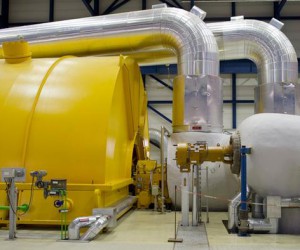2016 promises to be another very active year for independent power producers and energy projects throughout the sub-Saharan Africa region and across various technologies.
“There is huge international investor focus on IPPs due to the power shortages and load shedding in the region and the increasing demand for energy amongst the region’s growing economies. And opportunities for projects using both renewable and thermal technologies are expanding. South Africa’s Department of Energy’s Renewable Energy Power Producer’s Procurement Programme (REIPPPP) launched an IPP development boom in the region; now there is investment across the region in various technologies,” explains Scott Brodsky, Partner at international law firm Macfarlanes.
French President Francois Holland recently told a conference on Africa, held as part of climate change talks in Paris, that his government would double investments in renewable energy generation, ranging from wind farms to solar power and hydroelectric projects, across the continent to €2bn between 2016 and 2020.
In addition, China’s President Xi Jinping recently pledged $60 billion to development in Africa at the China Africa Summit held in South Africa. Canada has also made pronouncements of huge investment into African energy projects, and Obama’s Power Africa initiative is well underway.
The third Independent Power Producers and Power Purchase Agreements Conference (IPP & PPA Conference) will once again take place alongside the annual Africa Energy Indaba conference in Johannesburg on Thursday 18th February as an official side event. Sponsored by Macfarlanes, an international law firm with extensive experience in advising IPPs in Africa; their team of energy and legal experts will be facilitating the conference, examining the requirements for successful IPPs and bankable PPAs, discussing current examples and giving insights into how to negotiate PPAs successfully.
The IPP and PPA day will be relevant across the board to those involved or interested in IPPs, regardless of technology and country.
South Africa has rapidly become a world player in renewable energy and is well on its way to achieving government’s goal of 30% clean energy by 2025, according to a recent Department of Energy (DoE) report. The South African renewables sector, through the REIPPPP launched in 2011, has attracted R192.6 billion investment, of which 28% (R53.2bn) is much needed foreign investment.
“The renewables programme in SA (REIPPP) continues apace and we now await the result of the expedited bid window. We are also awaiting the results of the first bid window in the coal IPP programme and we are eagerly awaiting the launch of the gas-to-power programme in 2016. Outside of South Africa there are IPP developments in numerous countries in the region, including Zambia, Namibia, Uganda, Nigeria, Kenya and Mozambique,” explains Brodsky.
Those attending the conference can meet project developers and investors. “Delegates will hear about the current attractive markets, pitfalls to be aware of and how to get involved in the IPP regional market. There are many investors who want to start energy businesses, but are not sure of how to get involved and how to make it successful. In addition, energy intensive users like big mining groups are looking at alternative energy sources to provide their own energy and power up their operations, so this conference is relevant to them too,” adds Brodsky.
Macfarlanes’ projects team includes legal experts specialising in assisting investors and energy stakeholders with their Power Purchase Agreements and other key contracts as they set up energy projects across the continent, ensuring that projects are bankable and the legal agreements sound.
Topics to be discussed at the IPP & PPA Conference include:
- Global trends impacting IPPs & PPAs
- Understanding IPPs and PPAs in Africa
- What you need to know when investing in Africa
- Key issues for investors
- The role that governments and regulators play in IPP Programmes
- Legal and regulatory frameworks
- Tariff arrangements
- Project preparation
- Gas to Power and how does it fit into the energy mix
- Structuring a Bankable Power Purchase Agreement
- Financing IPP projects, what financial instruments are available and how developers can access funds for small and large power projects.






